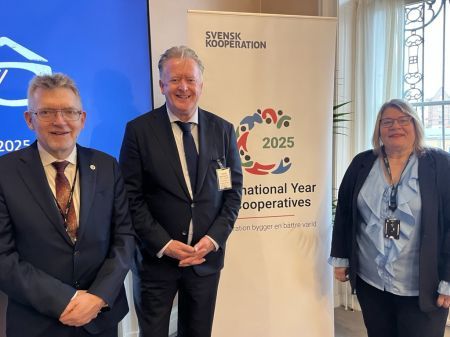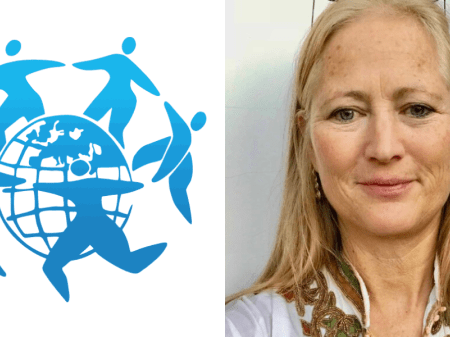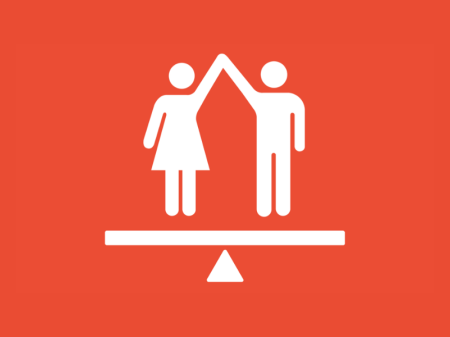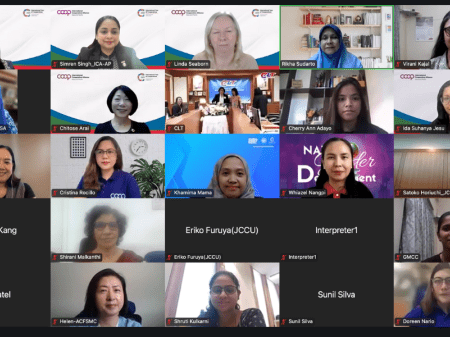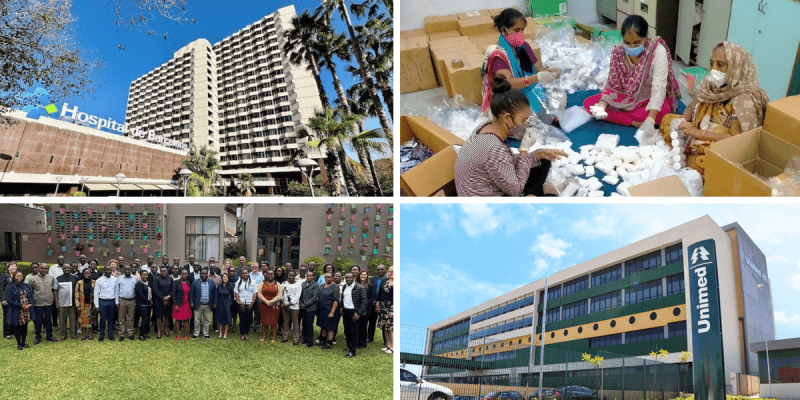
Early health cooperatives grew out of mutual aid societies and worker associations that began organising healthcare services for their members in response to limited and unequal access. Rooted in solidarity and collective action, these early efforts laid the foundation for a people-centred model of healthcare that continues to grow and diversify.
Today, health cooperatives provide essential health services, manage health facilities, expand access to insurance, support vulnerable populations, respond to health crises and champion data sovereignty and trust – and through this contribute to advancing Sustainable Development Goal (SDG) 3 on health and wellbeing.
Here are four examples of cooperatives active in this area around the world. To find out more, read the Policy Brief on SDG 3 here, and learn more about the International Health Cooperative Organisation, a sectoral organisation of the International Cooperative Alliance (ICA), here.
Scias-Hospital de Barcelona (Spain) is a cooperative hospital co-managed by users and professionals.
Installacions Assistencials Sanitàries Scias SCCL, a healthcare cooperative founded in 1974 in Spain, enhances access to quality medical services through a user-professional co-managed model. As the owner and operator of the Hospital de Barcelona, Scias ensures patient-centred care and democratic governance, directly involving 176,386 consumer members and 858 worker members as of 2023.
Through its partnership with Autogestió Sanitària, a medical professionals’ cooperative, Scias delivers efficient, high-quality healthcare services to over 200,000 people in Barcelona. The cooperative reinvests all surplus funds into infrastructure and technological improvements, ensuring sustainability and ongoing service enhancement.
Key innovations include a governance model where patients and professionals have decision-making power, and a reinvestment strategy that maintains high care standards. During the COVID-19 crisis, Scias rapidly expanded its intensive care facilities, treating 600 patients within the first 50 days, showcasing its adaptability and resilience.
Scias’ model demonstrates that democratic governance, inter-cooperation, and reinvestment in healthcare infrastructure foster high-quality, sustainable healthcare. Its experience offers valuable insights for replicating patient-professional governance models in other regions, particularly where strengthening social and cooperative healthcare is a priority.
Lok Swasthya Sewa (India) has guaranteed the right of health to women workers for 30 years
Founded in 1990, Lok Swasthya is India’s first women-led health cooperative, dedicated to ensuring access to affordable healthcare for women workers in the informal economy. Emerging from SEWA (Self-Employed Women’s Association), the cooperative was established to address the lack of social security and the financial burden of medical expenses on vulnerable women.
Based in Ahmedabad, Lok Swasthya operates a comprehensive healthcare network, including 24-hour pharmacies and a production centre for Ayurvedic medicines. These pharmacies serve not only as dispensaries but also as community health information hubs. A key innovation is the establishment of SEWA Shakti Kendras (SSKs), community health literacy centres that empower women by educating them about their health rights, access to public services, and disease prevention measures.
With a strong emphasis on self-governance, Lok Swasthya trains its members in leadership and health education, creating a sustainable, women-led healthcare system. The cooperative has consistently received the highest government audit ratings for excellence and has influenced public policies, including the integration of pharmacies into government healthcare services.
Lok Swasthya’s model highlights the transformative potential of cooperative healthcare in improving women’s health, financial stability, and empowerment, offering a replicable solution for inclusive healthcare worldwide.
Unimed (Brazil): the world’s largest network of medical cooperatives
Unimed plays a vital role in advancing SDG 3 by ensuring universal health coverage, enhancing healthcare quality, promoting disease prevention, and fostering social responsibility. With 339 cooperatives, 117,000 cooperative doctors, and 20 million beneficiaries, Unimed provides extensive healthcare services across 92% of Brazil’s territory, solidifying its position as a cornerstone of the country’s healthcare system.
As the largest cooperative healthcare network in Brazil, Unimed contributes to universal health coverage by offering medical services through 166 owned hospitals and partnerships with 29,000 accredited hospitals. The cooperative also creates prosperity, providing 156,000 direct jobs.
This extensive network gives patients access to a wide range of healthcare facilities, improving accessibility and service delivery. The cooperative upholds high standards of care through continuous training and the adoption of advanced medical technologies. Additionally, its pay-for-performance schemes incentivise healthcare providers to enhance service quality and patient outcomes.
Beyond treatment, Unimed promotes health and disease prevention through preventive care programmes aimed at reducing the burden of chronic illnesses. Its health education initiatives empower individuals to make informed decisions about their wellbeing, fostering long-term health improvements. Since 2001, the cooperative has implemented a National Policy on Social Responsibility, integrating community health initiatives with ethical business management. Environmental sustainability is also a priority, with efforts to reduce waste and energy consumption contributing to a healthier ecosystem.
Unimed’s commitment extends beyond healthcare, as it engages in social integration programmes that support vulnerable populations and promote community wellbeing.
Uganda Health Partners Cooperative (UHPC) is expanding access to affordable healthcare for students through cooperative health insurance
UHPC delivers sustainable healthcare access through the health cooperative model, capacity building and supporting the adoption and implementation of cooperative health insurance by donors, cooperative development partners, and other stakeholders. Its aim is to reach over 500,000 cooperative members and their families by 2028, advocating for universal health coverage (a core SDG 3 target) that includes cooperative health insurance for the informal sector.
One of UHPC’s recent projects is enabling access to quality and affordable healthcare – which is fundamental to students' wellbeing and academic success. Yet, for many students in Uganda, healthcare remains a significant challenge. To address this, UHPC has developed a cooperative health insurance model which allows students to receive affordable and timely medical care at designated health facilities, during school terms as well as holidays. The initiative also includes preventive health education programs aimed at reducing disease outbreaks.
At St. Cleric Primary School, 104 students benefit from UHPC’s partnership with Bitioma Health Center III; in March 2025 alone, 12 outpatient students received medical care without any direct payments. Meanwhile, at the Florence Nightingale School of Nursing, 1,193 students are enrolled under Apac Health Cooperative to access services at Florence Nightingale Hospital. According to the March 2025 performance report, 66 outpatients and 15 inpatients received medical treatment at no cost to them.
“Despite offering healthcare services to students, both Bitioma Health Center III and Florence Nightingale Hospital remained financially sustainable,” said UHPC. “Cooperative health insurance is proving to be a game-changer in bridging healthcare gaps for students in Uganda. By ensuring accessibility, affordability, and sustainability, UHPC and its partners are setting the foundation for a healthier, more productive future for students. This initiative is a testament to the power of collaboration and innovation in healthcare. Together, we can create sustainable solutions that benefit communities and ensure that no student is left behind when it comes to healthcare.”

